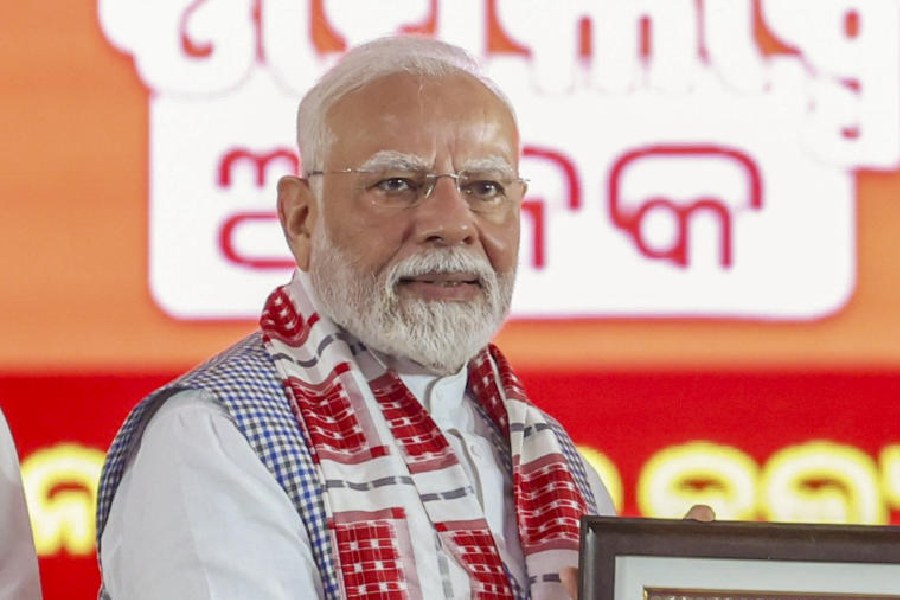Villagers on the banks of the Mathabhanga and Churni rivers in Nadia’s Krishnaganj, Hanshkhali and Ranaghat blocks have written to Prime Minister Narendra Modi, urging him to raise the issue of river pollution with his Bangladeshi counterpart Muhammad Yunus.
The villagers alleged that industrial effluents discharged by a sugar mill and distillery in Bangladesh have been severely polluting the rivers, destroying aquatic life and jeopardising their livelihoods.
The residents — mainly farmers and fishermen who have formed the Mathabhanga and Churni River Rescue Committee (MCRC) — have sought the Prime Minister’s intervention, asking him to negotiate with the interim Yunus-led government
in Bangladesh.
Their primary demand is Carew & Company (Bangladesh) Ltd., a sugar factory in Chuadanga, stop discharging untreated waste into the Mathabhanga river and immediately set up an effluent treatment plant.
“The waste discharged by the sugar company has caused immense harm to both fish and human life. Fish stocks are depleting, and the polluted water is affecting irrigation. People can’t even bathe in the river because skin diseases occur immediately,” said MCRC secretary Swapan Bhowmick, who sent the appeal on Saturday.
“We want the Prime Minister to take up this issue with the Muhammad Yunus government. Without a waste treatment plant, many people who depend on the river for their livelihood, such as farmers and fishermen, starve,” Bhowmick told
The Telegraph.
“Fishermen along these rivers are now at risk of losing their only means of income. Aquatic life has vanished, and the situation is worsening due to the absence of dredging for years,” he added.
A senior official of the Nadia district administration acknowledged the seriousness of the situation, stating: “The pollution of Mathabhanga and Churni by waste from the sugar mill has been a longstanding issue that remains unresolved.”
Villagers claim that authorities in both countries have long been aware of the problem but have done little to address it.
“The Indian government’s apathy is deeply disheartening,” said Bhowmick. “Given the current instability in Bangladesh, we don’t expect much from the caretaker government, but we have still appealed to our Prime Minister for the sake of lakhs of fishermen”, he added.
A report by the West Bengal Pollution Control Board confirms high levels of organic pollution in the Churni River, with biochemical oxygen demand reaching 12 mg/L —far above the acceptable range of 4–5mg/L.
“In such conditions, fish cannot survive,” said a science activist based in Nadia.
According to sources in the Nadia administration, Carew & Company operates from Darshana town in Bangladesh on the bank of the Mathabhanga river, where it discharges its waste. After entering Indian territory at Gede and flowing about 19km to Pabakhali, the Mathabhanga splits into the Ichamati and Churni rivers. The Ichamati travels through North 24-Parganas into the Bay of Bengal over a course of 272km, while the Churni flows 56km through Hanshkhali and Ranaghat before joining the Bhagirathi river.
Locals allege that effluent discharge from the sugar factory keeps the courses of all three rivers — Mathabhanga, Churni and Ichamati — polluted for much of the year. “The river turns visibly black from January to June when sugar is produced,” said Sannyasi Biswas, a fisherman from Chandpur in Krishnaganj. “In those months, fish are no longer caught. I have to work as a daily labourer to survive,” he added.
Jadav Biswas, a farmer from Bheripara, echoed similar distress. “We once relied on Churni water for irrigation, but we’ve stopped because the water smells foul and turns black. During monsoon, polluted water floods our fields and damages paddy and vegetables.”
The MCRC has also called on the Centre to enforce a 2016 verdict by the National Green Tribunal. On September 30, 2016, the tribunal directed the ministry of external affairs to initiate dialogue with Bangladesh to ensure the establishment of an effluent treatment plant. The order followed a petition filed by Ranaghat lawyer Madan Lal. “Over eight years have passed since the NGT verdict, but it seems the Centre has taken no meaningful action,” Bhowmick said.
Sources said an effort by BJP Ranaghat MP Jagannath Sarkar to set up a water-treatment plant close to the border using his LAD fund failed due to a lack of feasibility.











